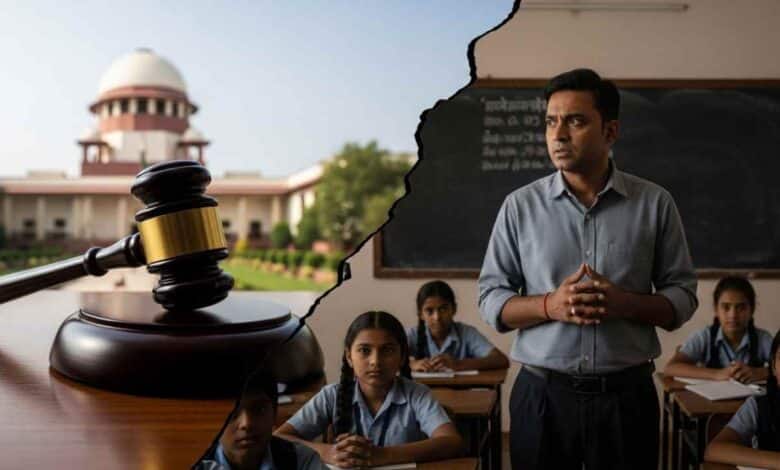TET Mandatory for All Teachers: Can a 17-Year-Old Supreme Court Ruling Be a Game-Changer?

TET Mandatory: Just as changing the rules in the middle of a game goes against the spirit of play, altering the regulations of a recruitment process after it has commenced is not justifiable. As the recent verdict making the TET (Teacher Eligibility Test) mandatory has caused a stir among the teaching community nationwide, an old judgment by the Supreme Court has become newly relevant. In the 2008 case of ‘K. Manjusree vs. State of Andhra Pradesh’, the apex court observed, “the rules of the game cannot be changed after the game has begun.”
The Core Issue and the Supreme Court’s Observation
In a recruitment process in Andhra Pradesh, a new minimum cut-off mark was introduced after the written examination, which was not mentioned in the original notification. When this decision was challenged, the Supreme Court ruled that it is not legally permissible to change the conditions or criteria of a selection process midway. According to the court, doing so is an injustice to the candidates. This very judgment is now emerging as a strong legal argument in the context of the TET case. Many view the imposition of a new condition of passing TET on teachers who were appointed following the then-existing rules, before TET was mandatory, in light of this verdict.
Current Situation and Actions by Various States
In a recent verdict, the Supreme Court has made it mandatory for all in-service teachers to pass the TET. Several state governments and teacher organizations have already filed review petitions against this ruling. According to recent information published on `wbpay.in`, multiple states including Jharkhand, Uttar Pradesh, and Kerala, along with organizations like the All India Primary Teachers’ Federation, have approached the court seeking a reconsideration of the verdict. Although the West Bengal government has not yet made a final decision on the matter, teacher organizations are hopeful that the state will stand by them.
What Does the Future Hold for Teachers?
In this situation, the future of teachers who have been dedicated to their profession for many years hangs in uncertainty. They argue that they were appointed based on the rules that were in place at the time of their joining. Imposing new conditions on them now is not only an injustice but also contradicts the Supreme Court’s previous judgment. With multiple review petitions filed, the matter is once again under legal consideration. It remains to be seen whether the apex court will provide relief to these in-service teachers based on its past observations or if the new verdict will be upheld.

